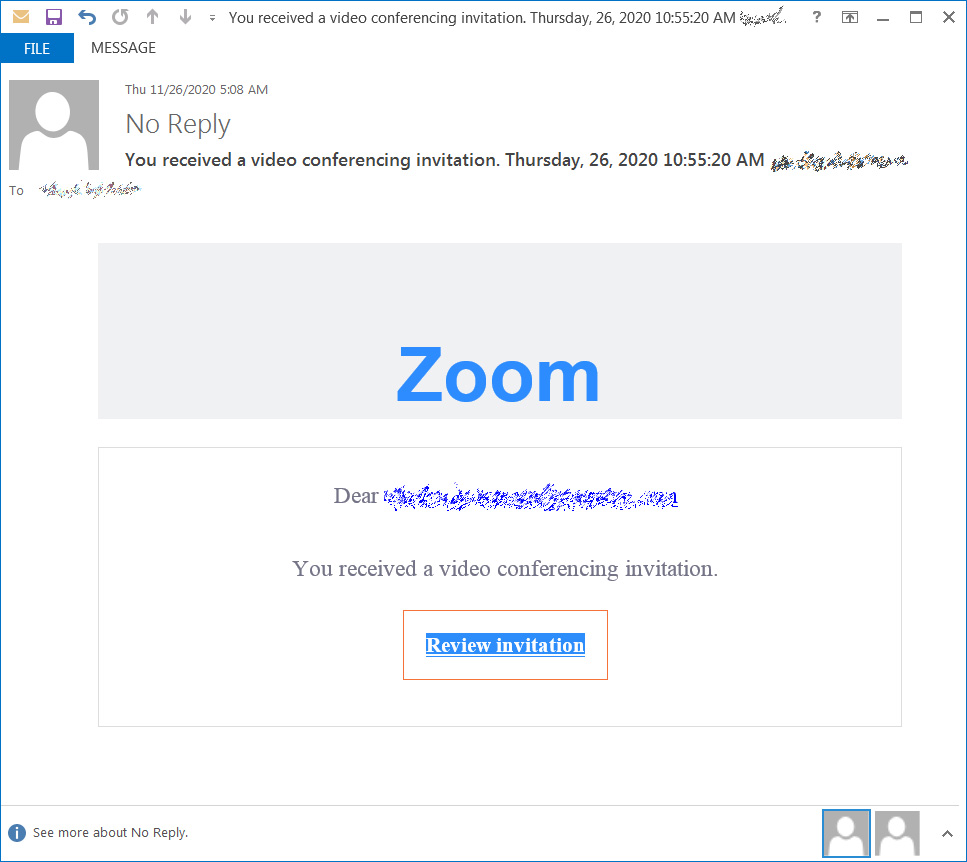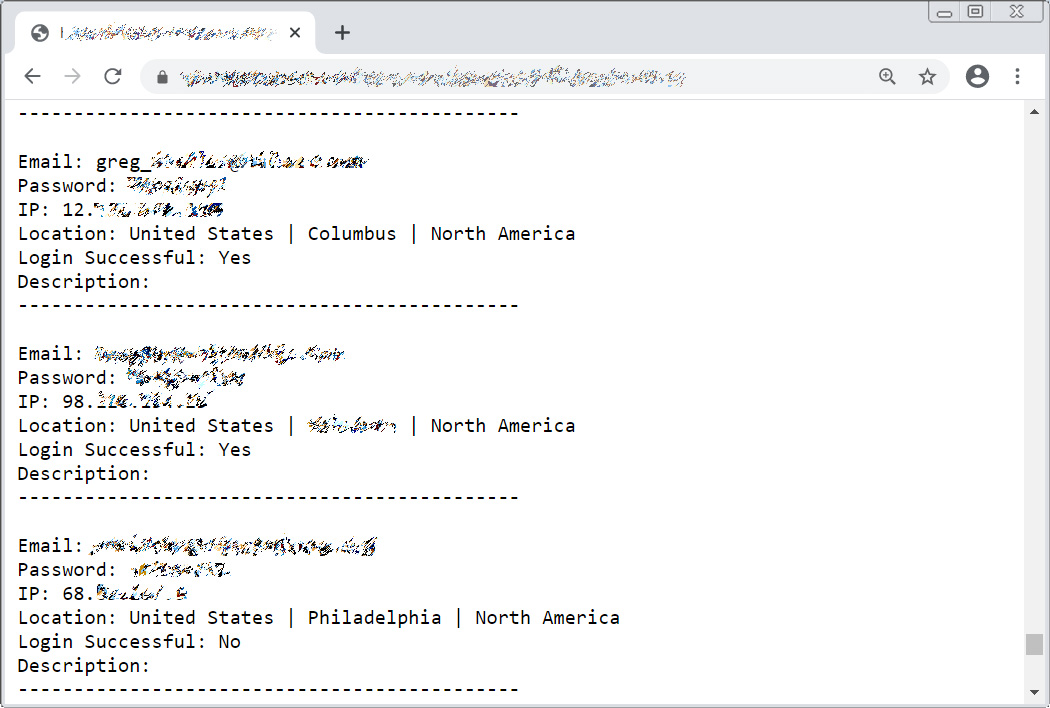Everyone should be on the lookout for a massive ongoing phishing attack today, pretending to be an invite for a Zoom meeting. Hosted on numerous landing pages, BleepingComputer has learned that thousands of users’ credentials have already been stolen by the attack.
With many in the USA hosting virtual Thanksgiving dinners and people in other countries conducting Zoom business meetings, as usual, today is a prime opportunity to perform a phishing attack using Zoom invite lures.
A security researcher known as TheAnalyst shared information about the attack with BleepingComputer after receiving hundreds of emails from this campaign targeting his company.
The phishing attack pretends to be from Zoom and states, “You received a video conference invitation,” with a link that can be clicked on to review it, as shown below.

Clicking on the link will open a fake Microsoft login page hosted on Google’s appspot.com domain. The phishing page will automatically have the targeted user’s email address inputted into the phishing landing page and prompts the user to enter their password.

When users enter their password, the phishing page will log the victims’ email addresses, passwords, IP addresses, geographic location, and whether the login credentials could successfully login to the email account.
TheAnalyst told BleepingComputer that the phishing pages are verifying credentials as they are entered by attempting to log into their accounts via IMAP.
At the time of this writing, BleepingComputer has been able to verify that this phishing attack has stolen over 3,600 unique email credentials. As many landing pages are used in this attack, the amount could be far more massive.

Everyone must be cautious regarding any Zoom invites they receive today. If they look like the phishing email above, or if you click on a meeting invite and it asks you to enter your login credentials, immediately STOP and close the web page.
Clicking on a Zoom invite link should open the app, not bring you to another web page asking you to login.
If you have accidentally fallen for this attack, you should immediately contact your organization’s administrator and change your password.https://568e9615840bae2d2b1d397209dbc9f7.safeframe.googlesyndication.com/safeframe/1-0-37/html/container.html
For those celebrating Thanksgiving, have a nice holiday, but be safe as well. Cyberattacks are commonly conducted on the holidays when defenses are down, and staff is limited.





























You must be logged in to post a comment Login